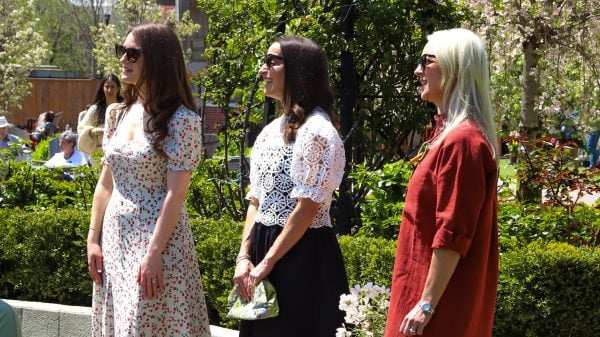Welcome to STYLE Canada‘s Boreal Book Club: a monthly meeting narrated by Erin Catto, (reviewer at Girl Well Read), for bookworms who’re looking to scour new pages. Since we aim to shine a spotlight on all things Canadian in life and style, beauty, and health and wellness, it goes without saying that every installment of the Boreal Book Club will feature a Canadian author and their latest title. Be sure to use the hashtag #borealbookclub to share with us on social!
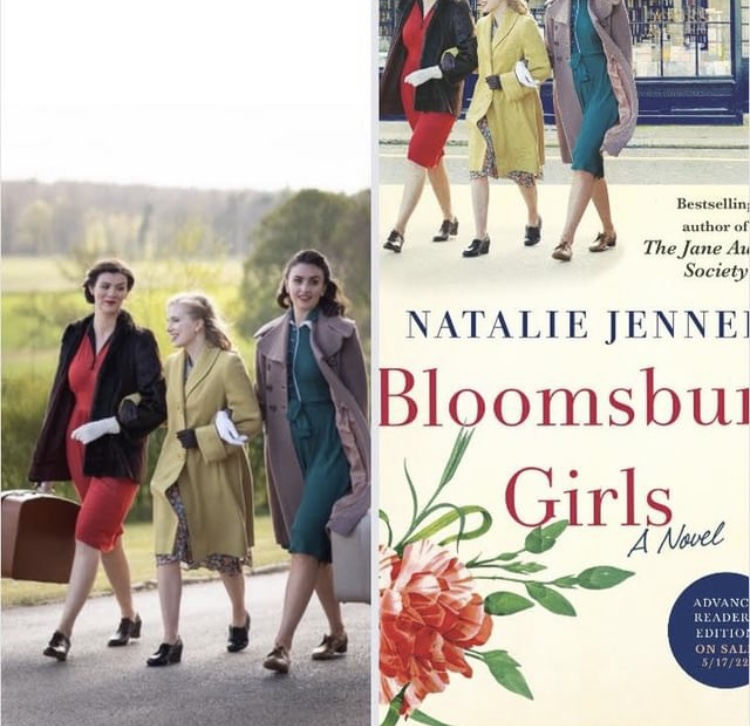
Bloomsbury Books is an old-fashioned new and rare book store that has persisted and resisted change for a hundred years, run by men and guided by the general manager’s unbreakable fifty-one rules. But in 1950, the world is changing, especially the world of books and publishing, and at Bloomsbury Books, the girls in the shop have plans:
Vivien Lowry: Single since her aristocratic fiance was killed in action during World War II, the brilliant and stylish Vivien has a long list of grievances – most of them well justified and the biggest of which is Alec McDonough, the Head of Fiction.
Grace Perkins: Married with two sons, she’s been working to support the family following her husband’s breakdown in the aftermath of the war. Torn between duty to her family and dreams of her own.
Evie Stone: In the first class of female students from Cambridge permitted to earn a degree, Evie was denied an academic position in favor of her less accomplished male rival. Now she’s working at Bloomsbury Books while she plans to remake her own future.
As they interact with various literary figures of the time—Daphne Du Maurier, Ellen Doubleday, Sonia Blair (widow of George Orwell), Samuel Beckett, Peggy Guggenheim, and others—these three women with their complex web of relationships, goals and dreams are all working to plot out a future that is richer and more rewarding than anything society will allow.
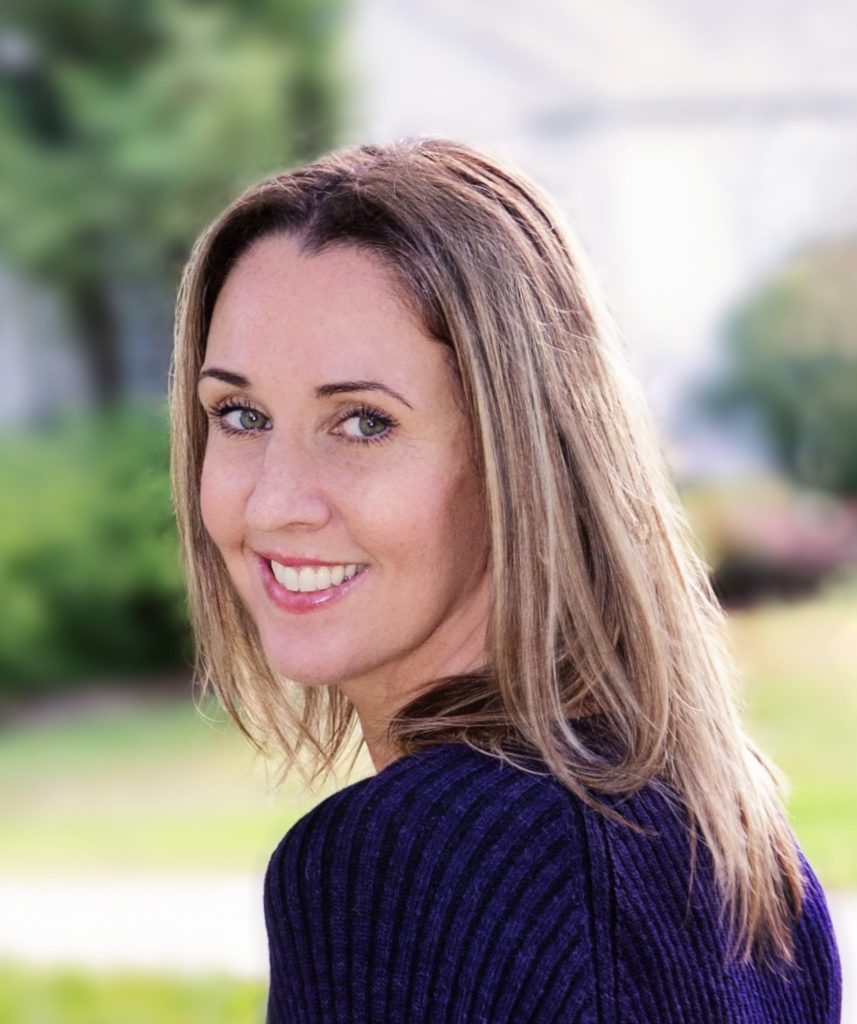
Bloomsbury Girls is a story about friendship, perseverance, and the love of the written word.
Vivien, Grace, and Evie are trying to forge their own paths in post-war London. Against the backdrop of a century old bookstore, the trio form an unlikely bond. Jenner’s cast is further bolstered by the addition of some famous figures, shining a light on some of the overlooked women authors of that time. And there are also a few characters from The Jane Austen Society that make a cameo.
Through the intertwined stories of the three women, Bloomsbury Girls examines class, prejudice, and gender roles. Each chapter opens citing one of the shop’s archaic and stuffy rules—a clever plot device that becomes oh so satisfying in the Epilogue. Although this book features a larger cast of characters, they are well-developed and have purpose.
Pick up your own copy of Bloomsbury Girls or keep reading to learn more about Natalie Jenner in an inclusive interview with STYLE Canada.
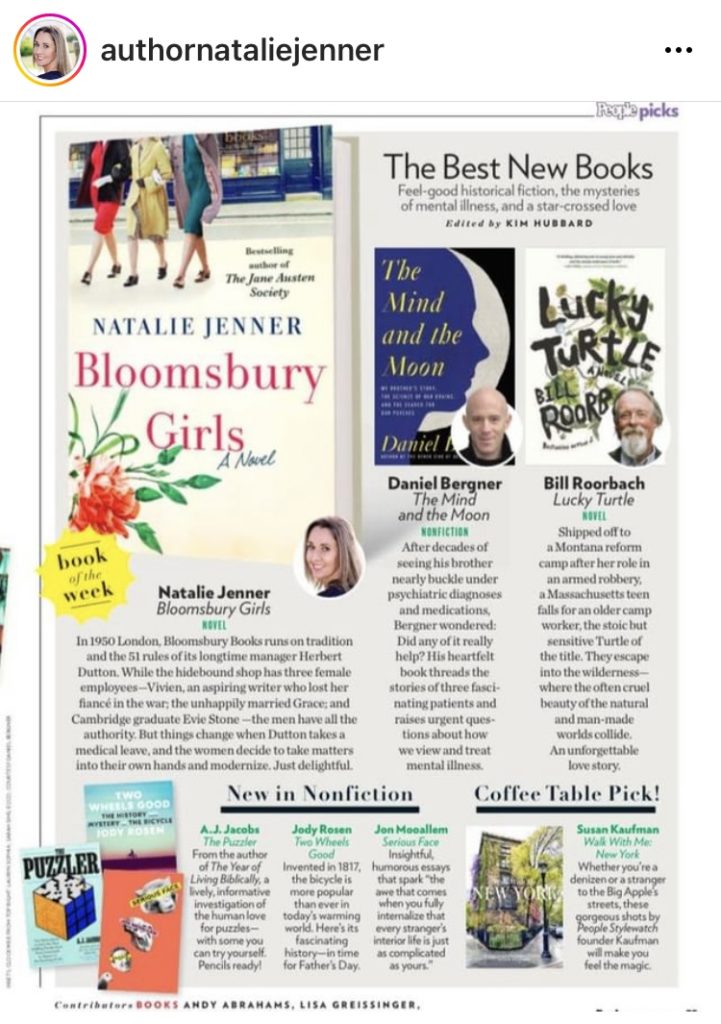
GWR: Is there a particular author/work that inspired you to become a writer or the way you write?
NJ: When I was very little, L. M. Montgomery was my biggest influence and inspiration – although I read from the age of three, the Anne of Green Gables books were the first ones that looked and felt grown-up to me and I overly identified with Anne as a victim of her own imagination! Quickly on Montgomery’s heels was Jane Austen, whose books I discovered relatively young in life on my parents’ shelves. I loved the efficiency of Austen’s prose: how she just dropped you into scenes and didn’t overly describe the characters’ physical appearance or setting. Ironically it felt very filmic to me, very alive – I now see how part of Austen’s genius was knowing exactly how much to give you, the reader, so that your own imaginative work as you read gives you the greatest possible satisfaction and reward.
GWR: What comes first for you—the overall idea or the characters?
NJ: The idea for sure. I will read something in The New Yorker, or hear a line in a Netflix documentary, or hit my head on something while falling down the Wikipedia rabbit hole, and it just starts to itch. They say you often end up writing about the one thing you can’t not write about. Once I know the setting, time period, and what’s at stake, I sit down to write and then the characters just start showing up, fully formed. It’s so much fun meeting them.
GWR: Did any minor characters become major characters over the course of the novel? Do you have a favourite character?
NJ: My characters all seem to innately know their place as I write, so it’s rare that one gets out of control. But Daphne du Maurier definitely ended up being a much more pivotal character for the women in the bookshop than I had originally intended, particularly in terms of the mentoring relationship she develops with Vivien. Vivien was a favourite character of mine as I wrote (all that sass and fashion-forwardness!), but honestly, I had a soft spot for all three women in the shop. I also developed a serious writing crush on Lord Baskin as I wrote, and Ash Ramaswamy slowly but stealthily stole my heart. By the end, I would have given Ash anything he wanted.
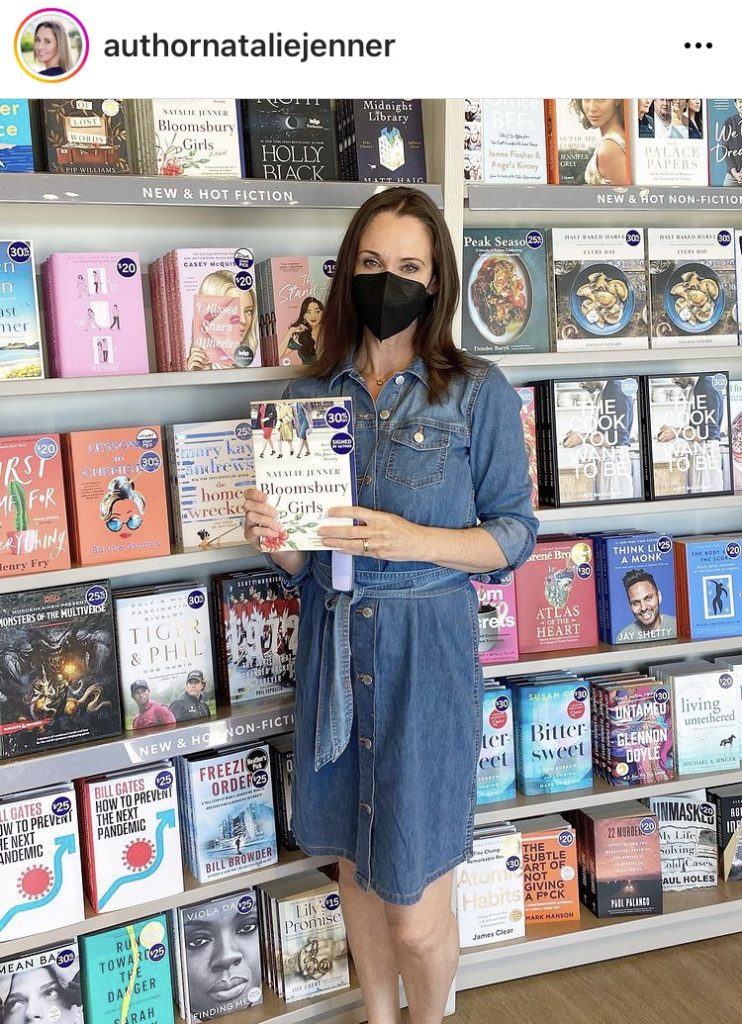
GWR: I loved your portrayal of what life would have been like for strong, intelligent women who are living outside of what is expected of them. Was there anything that you learned about that time period that surprised you?
NJ: I was actually pleasantly surprised by how much women were getting done behind the scenes, so-to-speak. Clarissa Spencer-Churchill and Sonia Blair (George Orwell’s widow) really did have the run of the place at the literary journal Horizon whenever the men went off. It was strangely similar to the war: when the men were absent from the workplace, women were entrusted with things they otherwise weren’t, proving their competence all along.
GWR: The inclusion of actual literary figures and social figures was fascinating. Can you tell us about the research you did?
NJ: I do this weird thing as an author when I get that first “itch” to write something new: I look for relevant books, movies, and articles lying around the house (I own a lot of books and DVDs) and work from those first, because they are a sort of embryonic reflection of what intellectually turns me on. With Bloomsbury Girls, I had several books on Du Maurier already on my shelves, as well as a fascinating book published on the twenty-fifth anniversary of Foyles Bookshop in London called The Romance of a Bookshop 1904-1929, which set out its earliest financial, staffing, and sales history. As I write, I will trip across new resources which often end up informing the plot: for example, when I learned about Peggy Guggenheim’s time working at the Sunwise Turn, one of the first women-owned and operated bookshops in America, I was thrilled to discover that a 1923 memoir of that shop had recently been reprinted only six months before. So that account became both another seminal resource for me as well as a kind of thematic endgame for the women in my story, who decide to try to take over the bookshop where they work. And the inclusion of Samuel Beckett came about because of a throwaway line in a Netflix documentary on Guggenheim which mentioned her affair with Beckett in the 1930s. So the research process for me happens both before and during the writing, and can look quite haphazard from the outside, but through it all runs a thread of personal meaning—even quirkily of fate—which makes it a joy for me to find ways to incorporate into the actual story.
GWR: What was the inspiration behind the shop rules?
NJ: I come from decades of working in human resources, most often as a career coach and recruiter, so looking back I think the rules reflect all those HR handbooks and guides I had to administer! The rules also come from the personality of Mr. Dutton, the shop’s general manager: I remember writing the interview scene with Evie Stone at the beginning, and right away picturing how Dutton would have his own HR handbook of a sort, properly framed and installed where everyone would have to see it when sitting in his office. But even before that, different rules had started tumbling out of the various disaffected employees’ mouths as I wrote their initial dialogue, reflecting the strained work environment they are all about to rebel against!
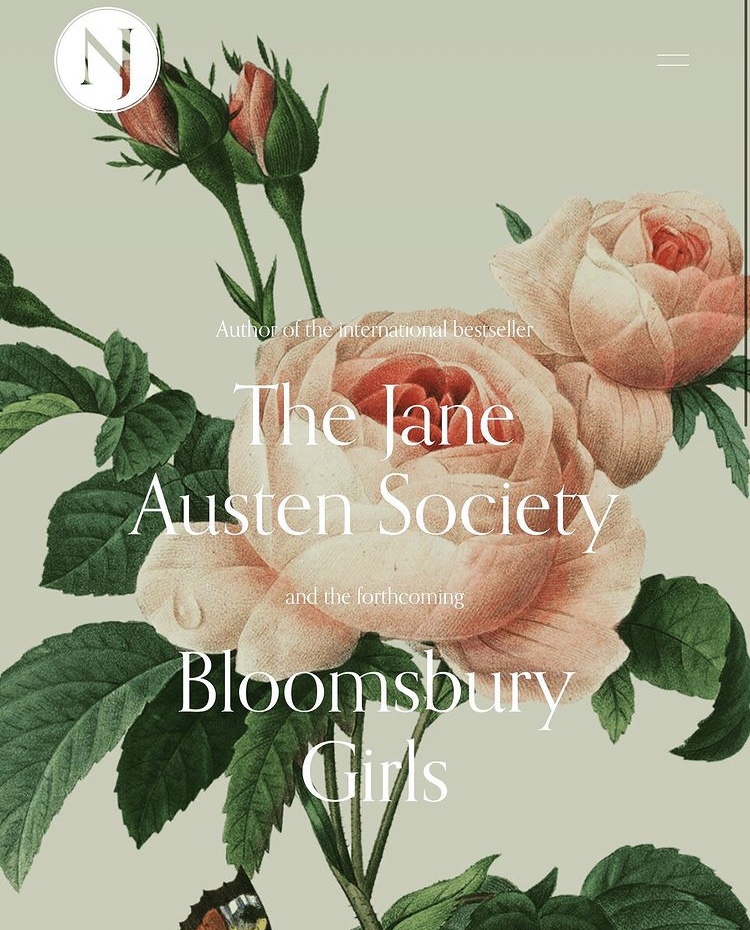
GWR: If Bloomsbury Girls was a beverage, what would it be?
NJ: It would definitely be what I recently learned the British call “builder’s tea”: strongly brewed black tea, with heaps of sugar and some milk, that is the reward for hard work and a source of camaraderie in the workplace, be it at a construction site or in a bookshop.
GWR: Evie has traversed your novels, do you have more stories for these characters?
NJ: I am working on a third book which, like Bloomsbury Girls, is a stand-alone but carries forward one of its new characters: Vivien Lowry, the insolent shopgirl and budding playwright. This book takes place five years later at the Cinecittà movie studio in Rome, where Peggy Guggenheim has lands Vivien a job as a script doctor after her latest play bombs. Part of the fun with this book was having a few characters from The Jane Austen Society suddenly show up that I wasn’t planning on, and getting to catch up with them all over again.
GWR: What is one thing you hope readers take away from your books?
NJ: I do believe that no matter how difficult life is, you have to find ways to move forward, big or small. That even the smallest decisions or choices (a new book, chatting with someone behind you in line, a cup of coffee with an old friend) can lead to something huge and sustaining. That is, ironically, exactly what happened to me five years ago, when I turned to the works of Jane Austen to get through a difficult health challenge for my family. I had no idea it would lead to my finally getting published after decades of trying, and I so hope that my books always give people that same measure of hope and optimism, as well as a sense of the rich value of our relationships with those around us and in our communities at large.







